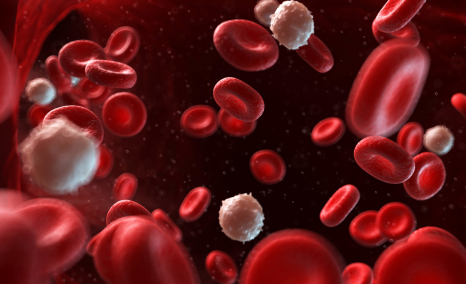Liso-cel in TRANSCEND CLL 004: Unprecedented and Sustained Responses with Manageable Safety Profile, Signaling a Promising Advance in Relapsed or Refractory CLL Treatment
Dec 12, 2023
| Date of Abstract presentation | 9th December 2023 |
| Indications | Chronic lymphocytic leukemia (CLL) and Small lymphocytic lymphoma (SLL) |
| Abstract Number | 330 |
| Abstract type | Oral |
TRANSCEND CLL 004 is the first pivotal, multicenter study of a CD19-directed CAR T cell therapy for patients with relapsed or refractory chronic lymphocytic leukemia (CLL) after progression on a BTK inhibitor (BTKi) and BCL-2 inhibitor (BCL2i). The study included a broad population of patients with relapsed or refractory CLL or SLL with high unmet need who had received at least two prior lines of therapy, including a BTKi (n=118), to be treated with BREYANZI. According to the findings presented at the ASH 2023 conference, the sustained undetectable minimal residual disease (uMRD) rates with BREYANZI persisted in the long-term follow-up, showing an uMRD rate of 64% in blood and 60% in bone marrow. The overall response rate (ORR) increased to 44%, with a median duration of response (DOR) of 35.3 months. Notably, one patient initially responding partially achieved a complete response (CR) without additional therapy at 18 months. Among 9 patients with CR at the primary analysis, 8 maintained ongoing CRs, and one completed the study with the last assessment as a CR. Furthermore, the U.S. Food and Drug Administration (US FDA) is currently reviewing a supplemental Biologics License Application (BLA) for Breyanzi in the treatment of relapsed or refractory CLL, with results derived from the TRANSCEND CLL 004 study. The anticipated action date for this application is set for March 14, 2024.
Regarding safety, BREYANZI demonstrated a well-tolerated safety profile in the entire treated patient cohort (n=118). Notably, 85% of patients experienced any grade cytokine release syndrome (CRS), with 8% experiencing Grade 3 CRS and no occurrences of Grade 4/5 CRS. Neurologic events (NEs) were reported in 45% of patients, including 18% with Grade 3 NEs, 1% with Grade 4 NEs, and no instances of Grade 5 NEs.
KOL Insights
“For patients with relapsed or refractory CLL, current treatment options rarely provide complete responses, and durability of response is limited. With long-term follow-up from TRANSCEND CLL 004, the complete and lasting responses achieved with liso-cel are unprecedented in this patient population, with a deepening of responses observed over time and a manageable and predictable safety profile. Based on these results, liso-cel has the potential to be a significant advance in the treatment of relapsed or refractory CLL.”–Expert Opinion.
Downloads
Click Here To Get the Article in PDF
Recent Articles
- Major Highlights and Insights from the AAAAI Annual Meeting, 2024
- DARZALEX FASPRO Quadruplet Regimen Demonstrates Striking Advancements in Treatment Outcomes for N...
- Most Promising Oncological Drugs Expected to Launch in 2022
- Major Highlights of Diffuse Large B-cell Lymphoma/ Large B-cell lymphoma (LBCL) in ASH 2021
- Meet DelveInsight in BioEurope '16
Conclusion
With extended monitoring from TRANSCEND CLL 004, the sustained complete responses achieved with liso-cel set a new standard in this patient cohort, demonstrating deepening responses over time and maintaining a manageable and expected safety profile. These findings position liso-cel as a potentially groundbreaking advancement in the management of relapsed or refractory chronic lymphocytic leukemia (CLL).
Refer to the Related Reports for More In-depth Insights –
Downloads
Article in PDF
Recent Articles
- ALLO-647 Integration in Lymphodepletion: Paving the Way for Enduring Responses and Safe CAR T cel...
- Breakthrough Success: AUGMENT-101 Trial Hits Primary Endpoint with Consistent CR/CRh Rates Across...
- TALVEY’s Versatility Shines: Key Insights from MonumenTAL-2 Study Illuminate Effective Stra...
- Meet DelveInsight in BioEurope '16
- Cilta-Cel’s Prolonged Impact: Deep Responses and Safety Insights from Earlier Lines of Ther...




